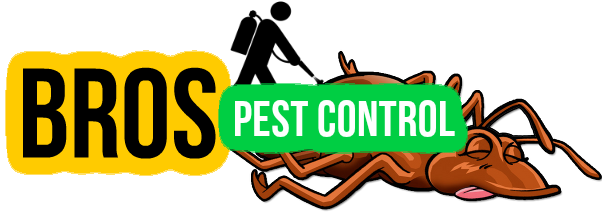Bee Removal Houston, TX | Wasps, Yellow Jackets, Bumble Bees
Houston Safe Bee Removal & Extermination
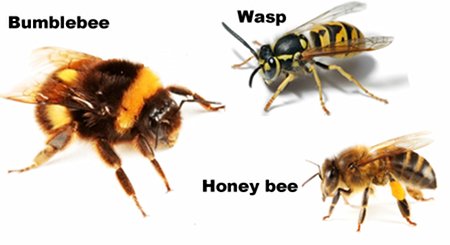 Are you looking for bee removal Houston, TX? Bro’s Pest Control is your connection to safe bee removal and extermination services. Exterminators within our network specialize in: wasp control, hornet control, bee swarm removal and bee removal. Pest control services can also include sealing off the entrances and exits, repairs from hive and damage, as well as traps. Bee’s can pose danger, especially if a loved one is allergic. Contact Bro’s Pest Control today to control your bee problem in the Houston area.
Are you looking for bee removal Houston, TX? Bro’s Pest Control is your connection to safe bee removal and extermination services. Exterminators within our network specialize in: wasp control, hornet control, bee swarm removal and bee removal. Pest control services can also include sealing off the entrances and exits, repairs from hive and damage, as well as traps. Bee’s can pose danger, especially if a loved one is allergic. Contact Bro’s Pest Control today to control your bee problem in the Houston area.
For Bee Control Houston, Texas Call, 1-888-497-9069
Specialized Bee Removal & Extermination
Bro’s Pest Control professionals can help you with all different bee problems including:
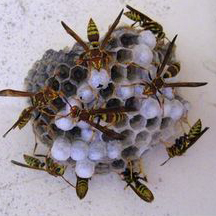 Removal of hives, bee swarm removal, yellow jacket removal, hornet removal, bumble bee removal and various of bee removal jobs. Bee removal Houston, TX experts will come out to your home or business and remove unwanted bee’s safely and at a reasonable price. Same day appointments for bee removal can be scheduled, if needed. Ready for bee control Houston, TX? Contact us today by calling 1-888-497-9069.
Removal of hives, bee swarm removal, yellow jacket removal, hornet removal, bumble bee removal and various of bee removal jobs. Bee removal Houston, TX experts will come out to your home or business and remove unwanted bee’s safely and at a reasonable price. Same day appointments for bee removal can be scheduled, if needed. Ready for bee control Houston, TX? Contact us today by calling 1-888-497-9069.
Bee, Wasp & Hornet Treatment
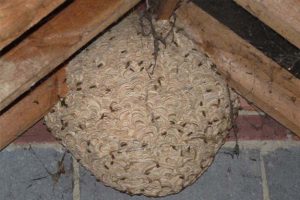 Bee, wasp or hornet treatment Houston, TX will require one of our bee specialists to come out to your home to perform a free inspection. They will arrive fully equipped to eliminate your bee issue. The bee exterminator will identify the location of the nest, depending on the type of stinging insect problem you have, and eliminate/remove the problems to protect your family’s health and safety. In the case of a hornets nest, the technician will treat the nest and return to remove it after insuring that all the pests have been killed.
Bee, wasp or hornet treatment Houston, TX will require one of our bee specialists to come out to your home to perform a free inspection. They will arrive fully equipped to eliminate your bee issue. The bee exterminator will identify the location of the nest, depending on the type of stinging insect problem you have, and eliminate/remove the problems to protect your family’s health and safety. In the case of a hornets nest, the technician will treat the nest and return to remove it after insuring that all the pests have been killed.
Bees are flying insects closely related to wasps and ants, known for their role in pollination and, in the case of the best-known bee species, the European honey bee, for producing honey and beeswax. For bee removal Houston, TX — contact us today!
Bee Extermination Houston, Texas
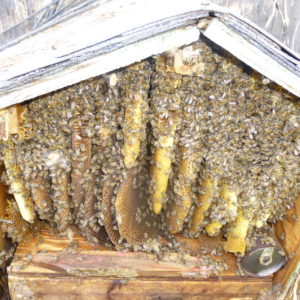 Assuming the bee's in question are not honeybee's, a Bro's Pest Control expert can exterminate them. Every year, beekeepers are called upon to give advice regarding the removal of honey bees (and other insect pests) from homes and buildings since honey bees are NOT to be exterminated. Honey Bee removal on the other hand, includes relocating the bee's to a different location. If you have a bumble bee, wasp or yellow jacket bee problem in Houston, TX -- then extermination can be done. For wasp, bumble bee, hornet or yellow jacket extermination Houston, TX -- please get in touch with Bro's Pest Control today!
Assuming the bee's in question are not honeybee's, a Bro's Pest Control expert can exterminate them. Every year, beekeepers are called upon to give advice regarding the removal of honey bees (and other insect pests) from homes and buildings since honey bees are NOT to be exterminated. Honey Bee removal on the other hand, includes relocating the bee's to a different location. If you have a bumble bee, wasp or yellow jacket bee problem in Houston, TX -- then extermination can be done. For wasp, bumble bee, hornet or yellow jacket extermination Houston, TX -- please get in touch with Bro's Pest Control today!
Houston, Texas
Houston (i/ˈhjuːstən/ HYOO-stən) is the most populous city in the state of Texas and the fourth-most populous city in the United States. With a census-estimated 2014 population of 2.239 million[5] within an area of 667 square miles (1,730 km2),[6] it is also the largest city in the southern United States[7] and the seat of Harris County. Located in Southeast Texas near the Gulf of Mexico, it is the principal city of the Greater Houston metro area, which is the fifth-most populated MSA in the United States.
Houston was founded on August 28, 1836, near the banks of Buffalo Bayou (now known as Allen's Landing)[8][9] and incorporated as a city on June 5, 1837. The city was named after former General Sam Houston, who was president of the Republic of Texas and had commanded and won at the Battle of San Jacinto 25 miles (40 km) east of where the city was established. The burgeoning port and railroad industry, combined with oil discovery in 1901, has induced continual surges in the city's population. In the mid-20th century, Houston became the home of the Texas Medical Center—the world's largest concentration of healthcare and research institutions—and NASA's Johnson Space Center, where the Mission Control Center is located.[10]
A wasp is any insect of the order Hymenoptera and suborder Apocrita that is neither a bee nor an ant. The Apocrita have a common evolutionary ancestor and form a clade; wasps as a group do not form a clade, but are paraphyletic with respect to bees and ants.
The most commonly known wasps, such as yellow jackets and hornets, are in the family Vespidae and are eusocial, living together in a nest with an egg-laying queen and non-reproducing workers. Eusociality is favoured by the unusual haplodiploid system of sex determination in Hymenoptera, as it makes sisters exceptionally closely related to each other. However, the majority of wasp species are solitary, with each adult female living and breeding independently. Many of the solitary wasps are parasitoidal, meaning that they raise their young by laying eggs on or in other insects (any life stage from egg to adult). Unlike true parasites, the wasp larvae eventually kill their hosts. Solitary wasps parasitize almost every pest insect, making wasps valuable in horticulture for biological pest control of species such as whitefly in tomatoes and other crops.
